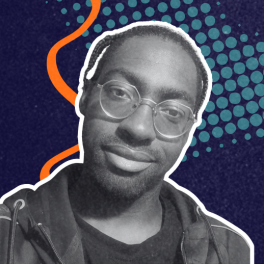
Please note: this piece includes sensitive topics that some people might find difficult. Please visit our Resources Page for help.
In reference to human sexuality, my first encounter with the term “asexual” was in 2013. A stranger I followed on X (formerly known as Twitter) came out as asexual on my timeline. I still remember their words expressing the simultaneous relief and despair of having admitted this fact about themselves, stating “I’m asexual,” in one tweet, shortly followed by another “That was the hardest thing I’ve ever had to [say].” 13-year-old me at the time was confused by this statement. My only understanding of asexuality was plant biology. So, naturally, I googled the definition of asexuality, and my (somewhat correct) understanding of asexuality was that asexual people did not experience sexual attraction to others, resulting in celibacy.
However, over the years, I’ve come to learn that asexuality is a spectrum. No, the asexual spectrum does not measure “how asexual you are.” Regardless of where you are on the spectrum, you’re still asexual. It’s just that one person’s experience of asexuality might look different to another’s. The definition of asexuality is “a lack of sexual attraction towards others;” but does a lack of sexual attraction also mean a lack of interest in sex altogether? Well, some asexual people might not decide to have sex due to their lack of attraction towards others, whereas other asexuals might choose to have sex despite their lack of attraction- hence why asexuality is a spectrum.
The ace (asexual) community all share the commonality of a lack of sexual attraction towards other people. For many (but not all) asexuals, this might manifest as a lack of interest in sexual activity altogether. Because, realistically, why would you want to have sex with someone you’re not attracted to? For many aces and allosexuals (non-asexual people), the idea of having sex with someone you’re not attracted to might seem unfathomable. However, there are circumstances where attraction might not be a major factor in wanting to have sex, which introduces the asexuals who may still enjoy having sex for reasons such as: wanting kids, enjoying physical touch, and many more reasons. This is all to say that while a lot of asexuals are celibate, not all of them are, and celibacy isn’t just an asexual experience. Many allosexuals are celibate, also.
Some people seem not to understand definitions of asexuality, even after my countless attempts to describe it, mostly due to not understanding what sexual attraction is. To put it simply, sexual attraction is to experience an appeal towards a person you find desirable, resulting in wanting sex with said person. Sexual attraction may be based on physical appearance, voice, movements and pheromones. Who you experience sexual attraction to depends on your sexuality. Asexuality is to lack attraction to people sexually, regardless of their gender, meaning I’m not attracted to men or women, or anyone of any gender identity. Imagine someone you aren't sexually attracted to. Now imagine that’s how you feel towards everyone all the time. That’s what being asexual is like for me.
This does not mean to say I’m incapable of experiencing arousal. Arousal can happen for many reasons. For me, it seems more of a hormone-based thing. Like many cis women my age, I menstruate, and so every month during ovulation, my hormones like to annoy me, by creating this “urge” to have sex and get pregnant, like my body so desperately desires. The only issue is that, despite not wanting kids or being prepared to get pregnant any time soon, I don’t actually WANT to have sex with anyone. It was a huge shock for me to learn that people have these “urges” a lot more frequently than I do, to bigger extents AND towards specific people. The urges I have are usually minimal and don’t last long, nor do they go in a specific direction towards people of any gender. The feeling of arousal is just kind of… there. After a while, it begins to fade, but I’ve never felt a sexual “pull” to any one person. I’ve also never experienced what people call “sexual frustration” either. Maybe I’ve experienced touch deprivation, but touch doesn’t have to be sexual. At the time of ovulation, I might find men more attractive than usual, and I might experience feelings of arousal more often, but the desire itself to have sex with them is essentially non-existent.
Just because asexuals might not experience sexual attraction, doesn’t mean they’re not capable of other forms of attraction. This is what’s known as the split attraction model. The split attraction model is the idea that who a person is sexually attracted to might not always be who they’re romantically attracted to. For example, I can find someone objectively attractive but that doesn’t mean I’m particularly attracted to them. Just because I like the look of someone, doesn’t mean they turn me on. This was one of those things I thought I was weird for.
I’ve come across people who I’ve learned can’t separate who they find attractive from who they’re attracted to. After I came to this realisation, it made sense to me why people ask strangers out on dates, as for my experience, to have any romantic interest in someone, I would have to have known them for a long time. Asking a stranger just seemed absurd to me, because “what if they’re a serial killer?” always used to be my thought. Not in the sense I genuinely believe they are, but it was what I used to say to convey that I don’t really know complete strangers who come up to me in the street and ask for my number. Unfortunately, a cute face is simply not enough for me to want to get to know you.
This doesn’t mean you could never date an asexual. Many asexuals like the idea of a romantic relationship but find it difficult to find someone who accepts them for themselves. Many people (usually allosexuals) feel that a lack of sex is a dealbreaker within a relationship, and so this leaves asexuals to be isolated, as a sexless relationship seems to be the way that a lot of them navigate.
I, myself, am still trying to figure out my feelings towards sex. For the majority of my life, I thought I was heterosexual, and this allowed me to explore sex and relationships since my late teens. Now, in my mid-20s, I have a better understanding of who I am, my feelings and boundaries. Looking back, I can’t help but feel like sex was something I only did because I felt compelled to, out of fear of disappointing my previous sexual partners, because I felt as though it was expected of me to want sex. This, in the ace community, is what we refer to allonormativity. Allonormativity is "the assumption that all people experience sexual attraction" This again, unfortunately, leaves asexuals to be treated like outcasts because their experience doesn’t reflect the majority. A 2022 study discovered that asexuals only make up an estimated 0.06% of the UK population. This means that being asexual is a queer experience as it doesn’t fit traditional norms in dating and sex culture.
Another study discovered that asexuals felt more stigma in comparison to other members of the LGBTQI+ community. In fact, Asexuality isn’t even legally recognised in most countries as a sexuality, leaving asexuals with little to no protection legally in the potential case they may experience discrimination, such as doctors making invasive suggestions to “correct” their asexuality, or therapists suggesting to their asexual patients to “continue having sex until [they] like it”. This allows people to deny the existence of acephobia, the discrimination of asexuals, furthering more oppression towards asexuals.
It's frustrating when our own friends and family try to rationalise my feelings for us, searching for made-up explanations as to why we are the way we are. You don’t want to date? we get told, “don’t worry, you just haven’t found the right person.” We don’t want to have sex? “Maybe you’re traumatised.” To put a stop to all this, we, in the ace community, must continue to speak up about our experiences. We must continue to be loud and proud, despite what people think or may say about us because it’s the only way we can bring change.
Support Young Creators Like This One!
VoiceBox is a platform built to help young creators thrive. We believe that sharing thoughtful, high-quality content deserves pay even if your audience isn’t 100,000 strong.
But here's the thing: while you enjoy free content, our young contributors from all over the world are fairly compensated for their work. To keep this up, we need your help.
Will you join our community of supporters?
Your donation, no matter the size, makes a real difference. It allows us to:
- Compensate young creators for their work
- Maintain a safe, ad-free environment
- Continue providing high-quality, free content, including research reports and insights into youth issues
- Highlight youth voices and unique perspectives from cultures around the world
Your generosity fuels our mission! By supporting VoiceBox, you are directly supporting young people and showing that you value what they have to say.





